Longevity Docs Awards • Should We Standardize Longevity Clinics? • Telomere Clock • Cyclic Metabolic Switching
Issue 50: The front page of longevity medicine - curated by doctors, for doctors.
Hey Doc,
Last Sunday was Father’s Day, my excuse for sending this a bit late. But in that pause, I found time to reflect.
We’ve come a long way.
What began as a simple idea: connecting physicians who believe longevity is not just a science, but a responsibility, has evolved into something much larger: a global community, a movement, and now, a platform shaping the future of longevity medicine.
This week marks a milestone.
We launched our first Certified Longevity Physician™ cohort.
We announced the inaugural Longevity Docs Awards.
And we’re still buzzing in the chat about GLP-1s, quantum biology, telomere clock, and longevity coaching models that actually work.
Happy Thursday!
Do We Need an Oscars for Longevity Medicine?
TIME has TIME100. Film has the Oscars.
But what about the doctors, scientists, and innovators quietly rewriting the story of human health?
Most of their work goes unnoticed overshadowed by hype cycles and PR machines.
Yet these pioneers are shaping the future of medicine.
That’s why we created the Longevity Docs Awards.
On June 25 at the iconic Carlton Hotel in Cannes, our first black-tie gala will honor the trailblazers defining what it means to live longer — and better. From lab bench to clinic, these visionaries are driving breakthroughs in prevention, regeneration, and personalized care.
But this isn’t just about recognition.
It’s about inspiring the next generation of longevity doctors and scientists.
It’s about advancing the research needed to turn discoveries into cures.
It’s about building ventures, informing public health strategies, and shaping a global movement.
It’s about giving longevity medicine the platform it deserves so progress doesn’t just continue, it accelerates.
Award Categories:
Longevity Doctor of the Year: In recognition of clinical excellence and visionary leadership
Digital Health Innovation of the Year: For advancing personalized health through technology
Biotech Breakthrough of the Year: For pioneering innovation at the frontier of biology
Consumer Longevity Product of the Year: For empowering healthier, longer lives at scale
Research Contribution of the Year: For landmark findings advancing the science of longevity
It’s time to give longevity medicine its red carpet moment.
Tuxedos. Recognition. Community.
Join us in Cannes. A few seats left for the Gala and Summit
We just kicked off the Longevity Docs Certification
This week, we officially kicked off the first cohort of the Longevity Docs Certification.
The program is built to bring structure and scientific grounding to the field of longevity medicine. For this beta, we focused on clarity, evidence, and practical relevance for physicians.
What’s new:
Video-based learning to make the experience more engaging and accessible
Landmark publications and scientific references integrated throughout
Interactive learning tools, like drag-and-drop exercises
Knowledge pre-checks and self-assessments to track progress and deepen understanding
Should We Standardize Longevity Clinics?
Today, everyone claims to be a longevity clinic. Medspas, tech startups, gyms, even online supplement shops. Many operate without a physician, without proper diagnostics, and without any medical oversight. It’s not just misleading. It’s dangerous.
This raises urgent questions:
Should longevity clinics be standardized? Regulated? If so, by whom? And what defines a clinic as truly focused on longevity?
To begin addressing this, the International Institute of Longevity has published a white paper offering foundational guidance. It outlines best practices, diagnostic frameworks, and intervention strategies grounded in science and clinical expertise.
Special thanks to Joanna Benz for her leadership on this initiative.
Here is a sneak peak of the report (it is worth reading it):
Key Recommendations
1. Defining Longevity Clinics
Outlines essential criteria for clinic credibility and effectiveness. These include multidisciplinary teams, physician-led care, data-driven protocols, and regulatory alignment.
2. Biological Age Framework
Recommends prioritizing validated biomarkers such as epigenetic clocks and proteomic panels, with an emphasis on consistent use and comparability in clinical practice.
3. Diagnostic and Treatment Pathways
Proposes a standard approach that includes:
Baseline biological age and health assessments
Personalized plans for lifestyle, nutrition, and supplements
Targeted interventions with structured follow-ups
The focus is on patient safety, measurable outcomes, and longitudinal care.
What This Means for the Field
For Clinicians:
Encourages adoption of unified standards to build patient trust, enable comparative benchmarking, and foster evidence-based care.For Industry:
Supports development of interoperable tools (AI analysis, biomarker assays) tailored to clinical needs, reducing fragmentation across providers .Next Steps:
Suggests forming working groups to refine standards, promote multi-site trials, and collaborate with regulators on qualification pathways.
Final Take
This white paper is a landmark in the effort to professionalize the longevity clinic space. It blends scientific credibility with real-world application and offers a practical path toward bringing longevity care into mainstream medicine.
The full report is well worth reading, this is the direction our field needs.
GLP-1 Microdosing & Tirzepatide Use
“Microdosing: snake oil or science?” Dr. F.G.
“I stack 2.5mg Zepbound on metformin. It’s working. $125/month.” Dr. T.
Why it matters:
The group debated clinical efficacy, safety, off-label vial reuse, and pricing strategies for tirzepatide, with practitioners sharing detailed protocols and pushback around multi-dose vial risks.
Key takeaway for doctors:
Protocols vary widely in this off-label landscape. Shared decision-making with patients (and clear documentation) is key when deviating from guidelines.
Patient Compliance & Coaching Models
“Habits form where we inhabit. Change the home, change health.” G.G.
“Start with what they care about, not what you want.” R.H.
“Are they a skeptic, a DIY, or need a win?” D.S.
Why it matters:
Doctors are rethinking how to drive sustainable patient behavior change. The consensus: it’s more about psychology, coaching, and environment than more protocols or lab tests.
Key takeaway for doctors:
Match interventions to personality archetypes and home context. Build trust through small wins. You’re not just a physician, you’re a longevity coach.
Quantum Biology: Hype or Hope?
“Physics is intrinsically involved in biochemistry... But does it improve outcomes? That’s what matters.” — S.M.
Why it matters:
The conversation spotlighted growing interest in energy-based therapies and structured water, despite limited clinical evidence. Some are encountering patient pressure driven by viral “white papers” and influencer-driven hype.
Key takeaway for doctors:
Stay open to emerging mechanisms (quantum biology, photobiomodulation), but remain grounded in real-world data. Curiosity is good; clinical evidence is essential.
Want to be part of the WhatsApp group?
Join 400+ Longevity Docs exchanging protocols, insights, and clinical breakthroughs in real time.
Spermidine vs. Estrogen for Heart Health in Menopause
In this preclinical animal study of 50 female rats, researchers found that spermidine supplementation (20 mg/kg/day) provided cardiometabolic protection comparable to estrogen in estrogen-deprived (postmenopausal model) rats. Spermidine improved mitochondrial function, reduced inflammation and oxidative stress, and prevented cardiac cell death.
Conclusion: Spermidine may offer a promising alternative or adjunct to hormone therapy for protecting heart health in postmenopausal women.
Limitations: Results are limited to animal models; human clinical studies are needed to confirm safety, dosing, and efficacy.
Red Meat & Dementia Risk: New Evidence
In this prospective cohort study of 133,771 U.S. adults, researchers found that higher intake of processed red meat was linked to a 13% increased risk of dementia and accelerated cognitive aging, up to 1.6 years per additional daily serving. Replacing red meat with nuts or legumes significantly lowered dementia risk.
Conclusion: Reducing processed red meat may support long-term brain health.
Limitations: As an observational study, it cannot prove causation, and the predominantly White, health-professional population limits generalizability.
Stem Cells Delay Knee Replacement by Over a Decade
In this randomized controlled clinical trial of 60 patients with bilateral knee osteoarthritis, researchers compared subchondral vs. intra-articular injections of bone marrow-derived mesenchymal stem cells (MSCs). After 15 years, only 20% of knees treated via subchondral implantation required total knee replacement versus 70% of those treated with intra-articular injection.
Conclusion: Targeting the subchondral bone with MSCs significantly delays the need for knee arthroplasty and shows superior long-term outcomes.
Limitations: Single-center study; findings may not generalize beyond carefully selected patients with matched bilateral OA and controlled MSC dosing.
Telomere Clock: Predicting Lifespan Across Species
In this cross-species observational study published in PNAS, scientists examined telomere dynamics in species ranging from mice to elephants. While initial telomere length varied widely, the rate of telomere shortening emerged as a strong predictor of species lifespan across mammals and birds.
Conclusion: It's not how long your telomeres are—it’s how fast you lose them that may define longevity.
Limitations: Correlational study across species; results may not directly translate to predicting individual human aging.
Cyclic Metabolic Switching: A New Theory of Intermittent Fasting
In this Perspective article published in Nature Metabolism (2025), Dr. Mark P. Mattson introduces the Cyclic Metabolic Switching (CMS) theory to explain the unique health benefits of intermittent fasting (IF). Unlike continuous caloric restriction or ketogenic diets, IF induces metabolic transitions between fasting and feeding states—activating cellular stress responses (e.g., autophagy) during fasting and growth/regeneration pathways (e.g., mTOR) during feeding.
Conclusion: It’s not just eating less—it’s the switch between metabolic states that may unlock the full health and longevity potential of fasting.
Limitations: The CMS theory is mechanistic and hypothesis-driven; while supported by rodent models and emerging human data, large-scale clinical validation is still needed.
Nabla Raises $70M Series C to Scale Agentic AI for Clinicians
Nabla, an AI assistant used by 85,000+ clinicians, secured $70M in Series C funding to expand its platform across more clinical roles and care settings—bringing its total funding to $120M.
Why it matters:
Nabla is moving beyond note-taking to deliver agentic AI—capable of initiating EHR actions, supporting coding, and streamlining workflows. Trusted by 130+ health systems, it's positioned as a leader in ambient clinical AI with real-world ROI.
Watch:
Expansion into inpatient and nursing workflows
Enhanced ICD-10/HCC coding and context-aware clinical support
Continued growth in academic and safety-net systems like CVS, Denver Health, and UI Health Care
L’Oréal Puts Beauty at the Heart of Longevity
At its first Longevity event in Paris, L’Oréal Groupe unveiled its new scientific platform, L’Oréal Longevity Integrative Science™, positioning skin health as central to healthy aging.
Why it matters:
L’Oréal is not just selling skincare, it’s redefining longevity through diagnostics, biomarkers, AI, and biotech partnerships. The beauty giant is building a science-backed ecosystem to move from correction to prevention, giving consumers tools to extend their skin’s healthspan.
Watch:
Longevity AI Cloud™ analyzing over 260 biomarkers
Cell BioPrint™ — a next-gen diagnostic device created with Korean startup NanoEnTek, offering a full skin health assessment in under five minutes
Partnerships with Timeline, TruDiagnostic, Senisca, and top aging researchers
Product innovation:
Lancôme Absolue PDRN™
Vichy Neovadiol powered by NAD+ and senotherapeutics
A bold step toward making beauty a legitimate pillar of longevity science.
Midi Health Launches AgeWell to Redefine Female Longevity
Midi Health has launched AgeWell, a new clinical offering focused on women’s longevity, expanding from its menopause care roots to deliver personalized, insurance-covered health optimization for women aged 35–65.
Why it matters:
Women spend 25% more of their lives in poor health than men, yet most longevity care is male-centric and costly. AgeWell fills a massive care gap with science-based, accessible longevity protocols tailored to women’s biology, covering cognition, heart health, hormones, sleep, and more.
Watch:
Expect national rollout of AgeWell visits, advanced biomarker panels, personalized prevention plans, and growing demand from women seeking to stay strong, sharp, and well into their 60s and 70s, without needing a $10,000 clinic.
Nucleus Genomics Launches Genetic Embryo Optimization Platform
Nucleus Genomics has unveiled Nucleus Embryo, a groundbreaking software platform that enables IVF patients to view detailed genetic profiles of embryos—assessing over 900 hereditary conditions and 40+ traits related to health, appearance, cognition, and mental health.
Why it matters:
With IVF success rates low and costs high, Nucleus Embryo offers unprecedented transparency and control in embryo selection. This marks a shift from basic viability screening to genetic optimization, helping families make more informed decisions.
Watch:
Through its new partnership with Genomic Prediction, the software will be integrated into genome-wide embryo screening workflows—paving the way for more personalized, data-driven IVF and expanding access to next-generation reproductive technology.
BioAge x Age Labs: Biobank Deal to Unlock Longevity Insights
BioAge Labs and Age Labs announced a multi-year partnership to analyze 17,000+ blood samples from Norway’s HUNT biobank, combining AI and multi-omics to identify drug targets and biomarkers for healthy aging.
Why it matters:
Access to one of the world’s largest aging datasets gives BioAge and Age Labs a strategic edge in developing longevity drugs and diagnostics backed by real-world human data.
Watch:
Expect new biomarkers, early disease risk tools, and pharma collaborations targeting resilience and age-related decline.
Longevity Docs Summit Cannes
Join the world’s most visionary longevity physicians, scientists, and innovators for two days of breakthroughs, discoveries, and high-level networking under the French Riviera sun.
Summit. Awards & Black tie Gala. Expo.
Speakers include: Dr. Eric Verdin, Naveen Jain, Dr. Olivier Veran, Lorraine. Cortez-Vazques, Dr. Elizabeth Yurth, Dr. Craig Koniver, Dr. Abid Husain, Dr. Jonathan Kuo, Dr. Darshan Shah, Dr. Matt Dawson, Dr. Tsin Uin Foong, Dr. Anant Vinjamoori, Dr. Amy Killen, Dr. Albert Pradeep, Dr. Tamsin Lewis, Dr. Patrick Sewell, Dr. Dobri Kiprov, Dr. Steven Murphy, Dr. Evelyne Bischof, Dr. Guenole Addor, Dr. Robin Rose, Dr. Anna Erat, Saad Alam, Alejandro Bataller, Dr. Muhammad Alhammad, Vania Lacascade, Marc P. Bernegger, Yianni Psaltis PhD, Dr. Jack Kreindler, Dr. Alexandra Bause PhD, Kayla Barnes-Lentz, Dr. Tania Elliott
📅 Date: June 25-26, 2025
📍 Location: Palace of Festival, Cannes - France
Hormones Mastermind Replay
For the first time, get full online access to the entire event:
✔ 10 expert-led modules
✔ Real-world protocols and case studies
✔ On-demand viewing, anytime, anywhere
No fluff, no travel: just pure, actionable hormone and longevity education.
Replay Pass: $295
Longevity Conferences Calendar
Dublin Longevity Summit: Dublin, July 2–4
ARDD: Coppenhagen, August 25-29
Why every doctor should be a longevity doctor.
The Movement
Longevity Docs is the world’s leading collective of physicians advancing longevity medicine through education, clinical research, advisory, and exclusive experiences. With over 400 members in 50+ countries, we’re building the global infrastructure for evidence-based, personalized longevity care.
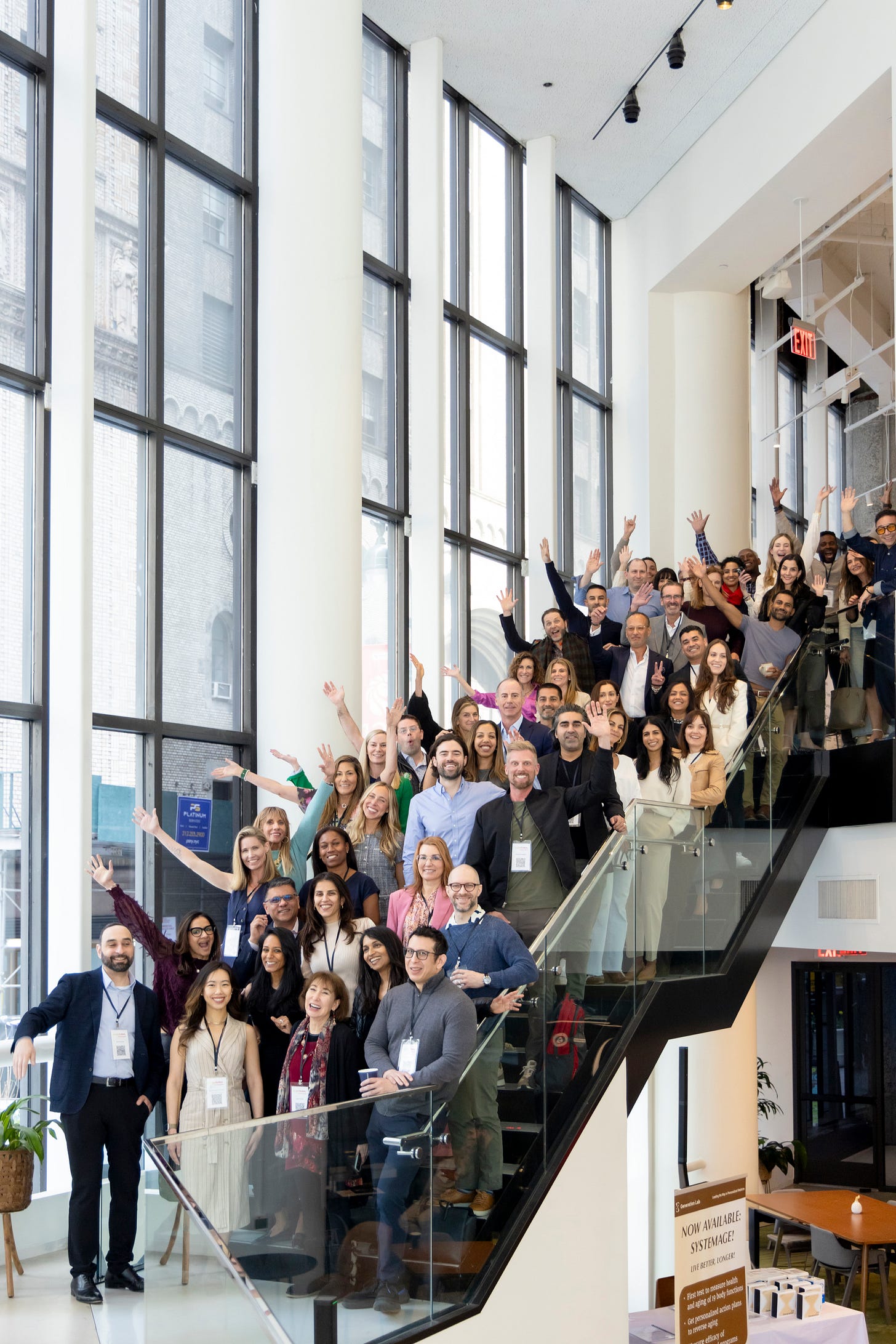
Why “Longevity Docs”?
Because we believe longevity is not a specialty — it’s a human right.
The future of medicine is proactive, not reactive. It's interdisciplinary, not isolated. It’s collaborative, data-driven, and deeply human. And it starts with us — the physicians who dare to redefine what care looks like across the decades of a patient’s life.
“Longevity Docs” isn’t just a name. It’s a statement of purpose.
Our Ecosystem
Physician Network
A trusted global collective of longevity-focused doctors exchanging protocols, referrals, and real-world clinical outcomes.Education & Certification
Earn your Certified Longevity Physician™ designation through our advanced curriculum, live masterclasses, and continuous learning tracks.Decentralized Research
Lead or participate in multicenter clinical trials and patient registries, accelerating evidence generation for healthspan optimization.Strategic Advisory
We partner with vetted longevity companies, life-science, tech, and clinics to help them grow.Global Events & Experiences
Access exclusive gatherings like the NYC Mastermind and the Cannes Longevity Summit & Awards
Who It’s For
Doctors → Join the club, get certified, grow your practice
Health Systems → Implement clinical longevity programs
Brands & Startups → Validate products, find advisors, run trials
Investors → Gain early access to insights, doctors, and deal flow
Subscribe to the Longevity Docs Newsletter
Stay connected with the backstage of the Longevity Docs community, a network of over 400 physicians spanning 50 countries, united in our mission to democratize longevity medicine. Explore the latest in evidence-based longevity care, gain exclusive access to physician insights, and join us in shaping the future of this transformative field.
Newsletter Disclaimer:
The content shared in this newsletter, including the "Buzz in the Chat" section, is for educational purposes only. It is derived from peer-to-peer conversations among physicians within the Longevity Docs community and is intended to inform and engage our network of doctors.
Please note that these discussions do not reflect the official position of Longevity Docs and are not to be interpreted as medical advice or recommendations. The insights and opinions shared are those of individual physicians and are provided as part of our mission to foster collaborative learning and dialogue among healthcare professionals.
We encourage all readers to consult qualified healthcare professionals for personalized medical advice and to evaluate any medical information in the context of their clinical expertise and patient needs.



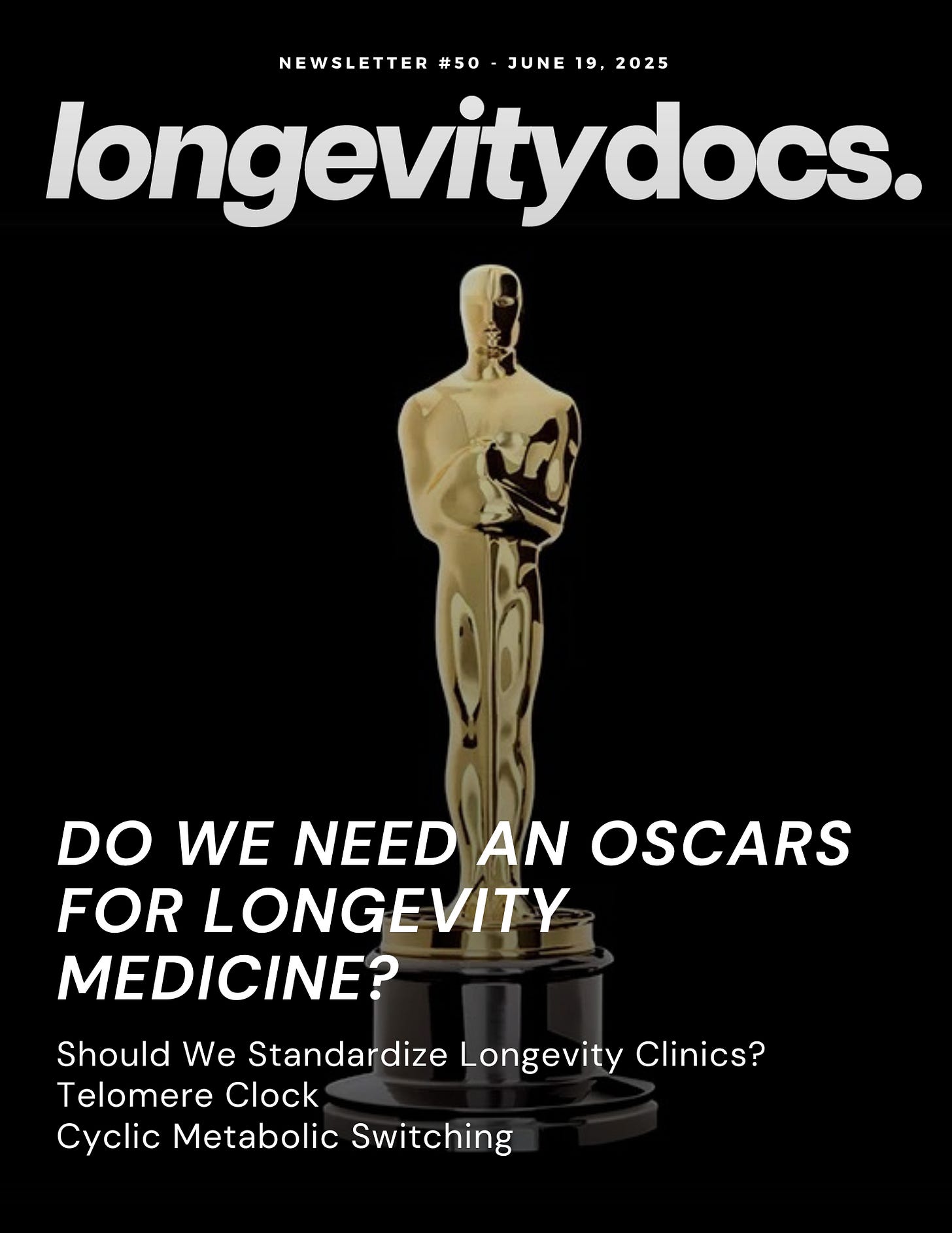


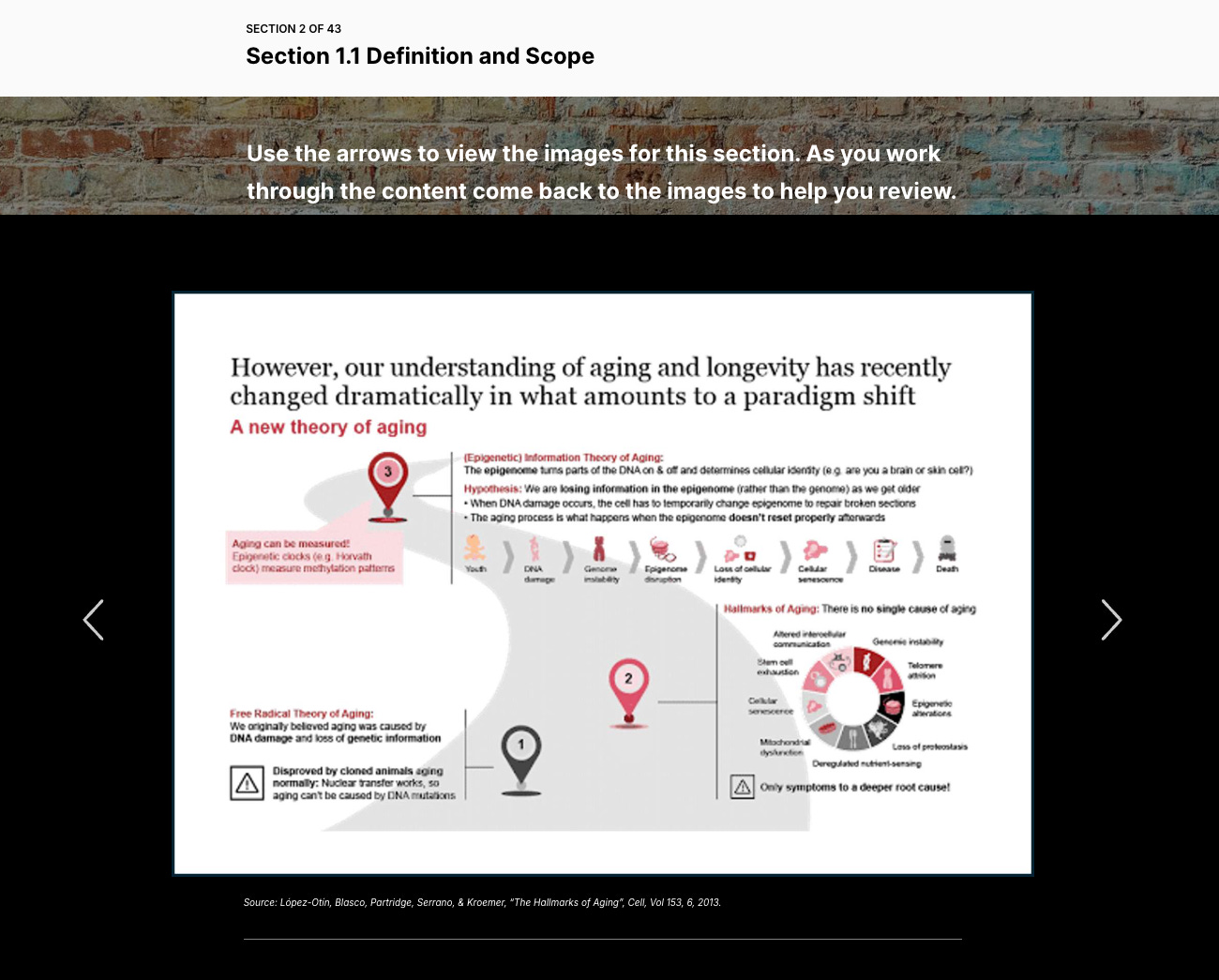









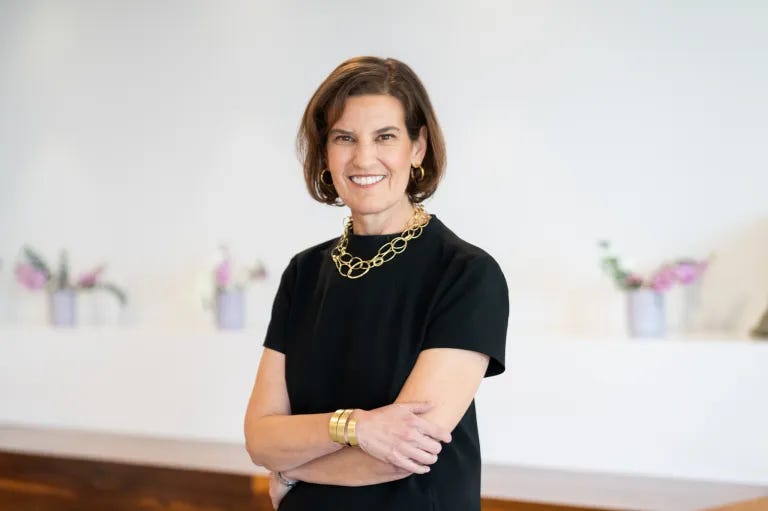
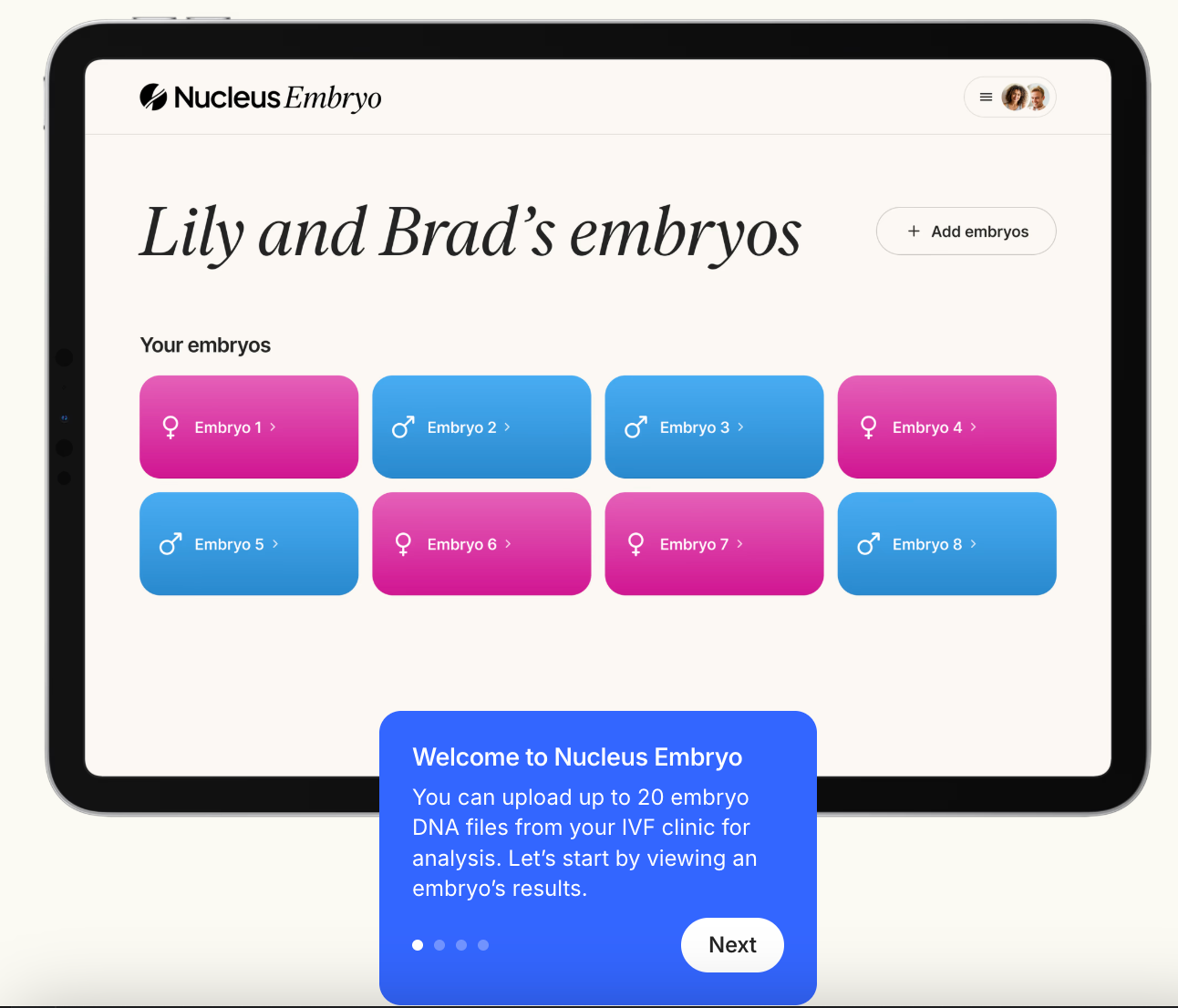



MDs must learn to think differently. Lesser developed nations cannot afford preventive care. The heart of the unwell population is educating kids about the pillars. Most critical- environmental health must be priority or humans will stay unwell. Aesthetics upticks one’s mood but is temporary and not medical.
Sure, why not. You can also give out an award to whomever advances the thinking the best or most on Substack. Here’s just a sample from me! 🤣😇👍
https://open.substack.com/pub/stevenscesa/p/the-long-tomorrow-redefining-retirement?r=28v6pr&utm_medium=ios